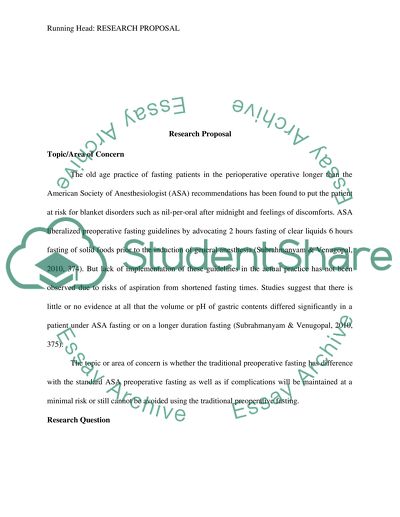Cite this document
(“Traditional Preoperative Fasting And ASA Preoperative Fasting Research Proposal”, n.d.)
Retrieved de https://studentshare.org/nursing/1391268-research-proposal
Retrieved de https://studentshare.org/nursing/1391268-research-proposal
(Traditional Preoperative Fasting And ASA Preoperative Fasting Research Proposal)
https://studentshare.org/nursing/1391268-research-proposal.
https://studentshare.org/nursing/1391268-research-proposal.
“Traditional Preoperative Fasting And ASA Preoperative Fasting Research Proposal”, n.d. https://studentshare.org/nursing/1391268-research-proposal.


